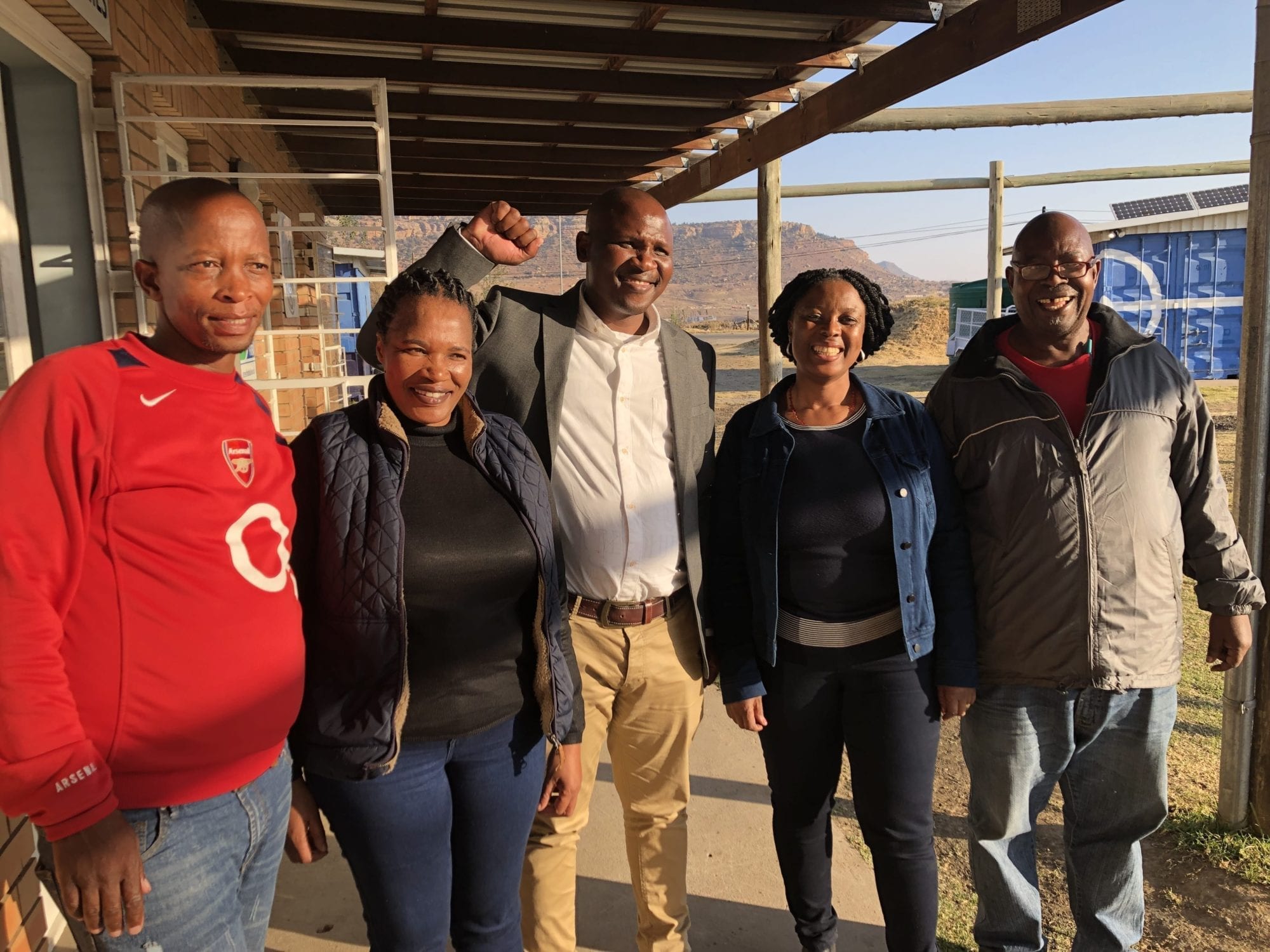A worker-centered, precedent-setting program that targets gender-based violence and harassment (GBVH) in four Lesotho garment factories is now in effect for as many as 10,000 workers producing jeans for the global market.
The program inauguration on Friday was marked by a social media campaign, including SMS text blasts to garment workers, Lesotho-based media coverage and a video announcement by signatories to binding 2019 agreements—the factory owner, brands, local unions and women’s rights groups, and international organizations and unions, including the Solidarity Center, Workers United, and the Worker Rights Consortium. The program, which is unique in that it is binding and worker-led, will empower Lesotho unions, human and women’s rights groups to effectively address GBVH. One of its tools is a new Solidarity Center GBVH training video in English and Sesotho, which debuted on Friday, that will be widely disseminated to garment workers during training programs and via social media.
To combat widespread abuse, the program is providing garment workers with GBVH awareness trainings, a confidential reporting system and enforcement processes administered by an entity independent of employer influence. Under the program:
- Workers’ Rights Watch, an independent Lesotho-based nonprofit entity established by the agreements, is fully empowered to investigate complaints of GBVH and determine remedies to redress violations of the agreements’ GBVH code of conduct.
- A confidential, toll-free information line run by one of the women’s rights organizations is available six days a week for garment workers to discuss GBVH issues and remedies with trained counselors, including determining their rights under the code of conduct and how to participate safely in a complaint and remedy process.
- Education and awareness campaigns and programs are being provided to garment workers and their supervisors that get at the root causes of gender discrimination and violence against women, outline the GBVH code of conduct and remedies under the program, and encourage reporting through the information line.
“Painful occurrences have been happening at our place of work,” said Nien Hsing shopfloor union representative ‘Mamoleboheng Mopooane, describing demands by supervisors for sexual favors from workers seeking employment at the factory gate in exchange for work in previous years.
“We are really grateful for this program because before it has even [officially] started, we can see that there are already existing successes,” she said, adding that the program will be of even greater assistance once workers know where to report violence and harassment, and can see that GBVH incidents are taken seriously.
Program partners include Lesotho-based unions and women’s rights groups that will play a key role in implementing the program to ensure that the binding agreements change the culture and practice at Nien Hsing’s factories and provide remedy for victims of GBVH. These include the Federation of Women Lawyers in Lesotho (FIDA), the Independent Democratic Union of Lesotho (IDUL), the National Clothing Textile and Allied Workers Union, Lesotho (NACTWU), the United Textile Employees (UNITE) and Women and Law in Southern Africa Research and Education Trust (WLSA)-Lesotho; international rights organizations Solidarity Center, Worker Rights Consortium (WRC) and Workers United. Global brands Levi Strauss, The Children’s Place and Kontoor Brands and the employer Nien Hsing are signatories to and participants in the binding agreements and GBVH program. Funding comes from Levi Strauss, The Children’s Place and Kontoor Brands together with the Solidarity Center and WRC in collaboration with the U.S. Agency for International Development (USAID).
A 2019 survey of workers at three Nien Hsing factories in Lesotho by WRC, which spurred the agreements, found that nearly two-thirds of the women from three factories who were interviewed reported “having experienced sexual harassment or abuse” or having knowledge of harassment or abuse suffered by co-workers. Women workers from all three factories surveyed identified GBVH as a central concern for themselves and other female employees.
The agreements build on the Bangladesh Accord on Fire and Building Safety, in which unions were key participants. The Accord recognizes the fundamental role of collective bargaining in achieving an agreement that is binding and enforced, backed by international brands’ commitment to link their ongoing business with their supplier to their compliance.
The Lesotho GBVH program also is partially modeled after the Fair Food Program, a set of binding agreements between leading food brands, like McDonald’s and Whole Foods, and the Coalition of Immokalee Workers, which uses an independent complaint mechanism.
While sexual harassment and other forms of gender-based violence may happen at any workplace, GBVH is rampant in the global garment and textile industry.

